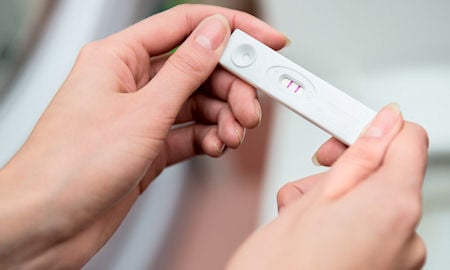
Preparing for In Vitro Fertilization (IVF): Lifestyle Factors
TRANSCRIPT
Slide 1
Hello. My name is Dr. Brooke Rossi and I am a practicing reproductive endocrinologist and infertility specialist. This micro-video discusses lifestyle factors that may affect in vitro fertilization, or IVF, outcomes. Although many of the topics discussed also affect general fertility, for the purposes of the video, we are focusing on IVF.
Slide 2
Several factors known to affect IVF success are listed on this slide. They include age, weight or body mass index, smoking, alcohol use, diet, vitamins, supplements and stress. For the purposes of this video, we will focus on age, weight, and smoking.
Slide 3
As we will discuss, increasing age and high or low weight or body mass index, decreases the chance of getting pregnant and having a baby with IVF. In addition, smoking also decreases success with IVF.
Slide 4
Let’s take a look at the SART website and data to demonstrate the impact of age on IVF outcomes. SART is the Society for Assisted Reproductive Technology. As you can see, as a woman ages through her late 30’s and 40’s, her chance of live birth, or the chance of having a baby from 1 IVF cycle, falls significantly.
The chance of live birth falls, because as women age, there fertility goes down and the chance of miscarriage increases. The result is a lower chance of having a baby.
Slide 5
One of the other major influences of IVF success is weight.
We can understand the impact of weight by looking at the SART patient predictor. This patient predictor can be used to estimate a patient’s chance of having a live birth with a fresh IVF cycle. It can be found at this website. It allows us to see the impact of weight and body mass index. In this example, if a patient has a weight 140 pounds, her chance of having a baby is about 40%. However, if we hold her other characteristics the same, but change her weight to 240 pounds, we see her chance of having a live birth is almost 10% lower.
You can go onto the SART website and use this patient predictor to see the impact of weight, as well as age, may affect IVF success.
Slide 6
Smoking cigarettes during an IVF cycle may lower the chance of having a baby with IVF. Some of the studies looking at the effects of tobacco use show that women who smoke may have less eggs retrieved during IVF and have a lower chance of getting pregnant. Also, men smoking cigarettes can be harmful to IVF. Even regular second hand smoke can affect IVF outcomes in a negative fashion.
Slide 7
In summary, age, weight and tobacco, as well as other factors can affect IVF success. Although you cannot change your age, be sure to talk with your physician about your chances of IVF based on your age and other fertility factors. Try to be a healthy weight when starting IVF. Finally, don’t smoke and make sure others around you aren’t smoking either.

